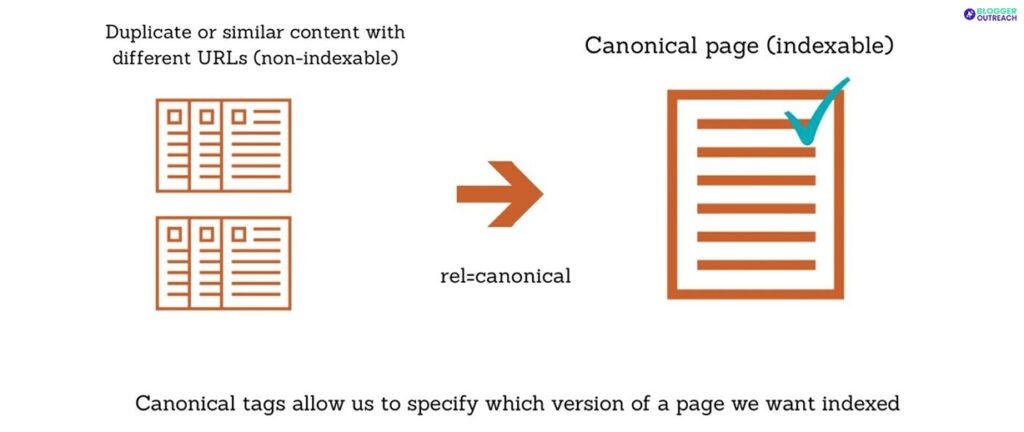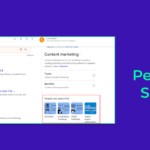Table Of Content
If you’re someone from this SEO arena, you know the importance of link building. If you spend some time on the web, you’ll discover many link building strategies as well.
However, how can you gauge whether your link building is on point?
When it comes to link building, links built naturally or organically are given the top priority by the search engine.
Links that are natural pass equity to the target site, which is known as link juice.
Regarding link juice, many people talk about rel-canonical links. Do they pass link juice?
In this article, we will be discussing link juice and explain if rel-canonical pass link juice.
Without further ado, let’s get started!
What Is Link Juice?

How do we evaluate something? By its quality, right?
Similarly, Link Juice refers to the quality of a link. It is the value that flows through hyperlinking.
When a page receives a link from another website, the link passes some of its value to the receiving page. This value is commonly referred to as link juice.
So while building links, it is important to evaluate links that come with the value and those that don’t.
1. How Does Link Juice Work?
Do you know that link juice is a ranking signal? Yes, absolutely!
Let’s understand this with the help of an example.
Imagine that you have two sites. Keeping all the other ranking factors constant, let’s say a page or site has 2 hyperlinks while the other receives 3 links from different websites. Can you tell which side is going to rank higher? Certainly, the site received three links.
Because the more link juice your site receives, the higher the link juice you receive.
If you see this through the eyes of Google, link juice acts as a trust signal. If more and more link juice passes to your site, your credibility will improve accordingly.
Another factor you must consider here is the number of sites you are linking to. Let’s say the site you’re receiving a link from is also linked to other sites – the amount of link juice you receive here will be on the lower side.
Whereas, if you are getting links from a site linking to yours ONLY – here, the site passes through a higher amount of link juice.
2. How Can You Receive Link Juice?

Have you heard about backlinks?
Backlinks are inbound links pointed to your site that you receive from an external site. Backlinks pass link juice to your site.
Earning backlinks is not enough – they must be of high quality.
The most popular way of earning backlinks is guest posting. Guest posting is writing for other sites and receiving inbound links pointing to your site.
However, Guest Posting Efforts That Attract Link Juice Come With The Following:
- The site you’re linking to must have some authority and prominence within the industry.
- The site must have its metrics (DA, DR, traffic, spam score, higher ranking, etc.) right.
- Pages or websites you’re linking to should be similar to your niche.
- Content is your top priority. You must position yourself as an authoritative source of information to attract credible sites to link to your content.
- It is better to connect to a site that focuses on creating user-generated content.
Apart From Guest Posting, You Can Think Of The Following For Attracting A Backlink:
- You can join a community and partner with major sites.
- Moreover, you can also leverage your PR efforts to get quoted on other sites.
3. How Can I Calculate Link Juice?
A link juice depends on many factors, such as:
- The site that you’re linking to.
- The HTML of the link.
- Anchor text used.
- Whether the topic is relevant or not.
If you want to check the domain authority of the site before linking to it, you can leverage any of the tools available there.
Additionally, what about the HTML of the link? For that, you need to know the types of links. Links are basically two types: Nofollow and Dofollow Links.
Well, we all know Dofollow link passes link juice from the source site to the destination site, and they are beneficial for SEO.
However, NoFollow Links use a special HTML tag called ‘rel=”nofollow”‘ which tells search engines not to follow the link and not use the linked page for ranking purposes. This means NoFollow links don’t give any page authority.
Let’s come to the second part of this Article which is about rel-canonical tags.
What Is A Canonical Tag?

It is an HTML tag that helps the algorithm deal with duplicate content on websites.
Let’s say you have pages with almost similar content; you can use rel=canonical on one of them to instruct the search engines that the other page is the original version.
Now the search engine will only index the original page. And any “link juice” from the duplicate page will be passed on to the original page.
1. When To Use Canonical URL?
As we mentioned earlier, you can use canonical tags when you think there is a duplicate content issue.
Use canonical URLs when you think the same content is present under different categories.
If you have a page that is accessible through different filtering or sorting options, or if you’re an e-commerce site with multiple URLs for the same content, you should use rel=canonical.
2. When Not To Use Canonical URL?

In the following cases, you must refrain from using Canonical URL:
- If you’re using a tracking URL.
- There are different ways to access your home page.
Does Rel-Canonical Pass Link Juice And Help Seo?
The answer is both No and Yes. It doesn’t pass 100% of the link juice. However, it can positively impact your website’s SEO.
Well, they do pass some part of the link juice. You need to discover how much link juice is lost when using NoFollow links. There is no clear answer from the search engine’s end. However, the loss is likely to be small, so it’s not something to get too worked up about.
However, it can indirectly improve a website’s SEO by ensuring search engines can effectively crawl and index its content. Using the canonical tag correctly can ultimately lead to better visibility and higher rankings in search results.
Read Also:








